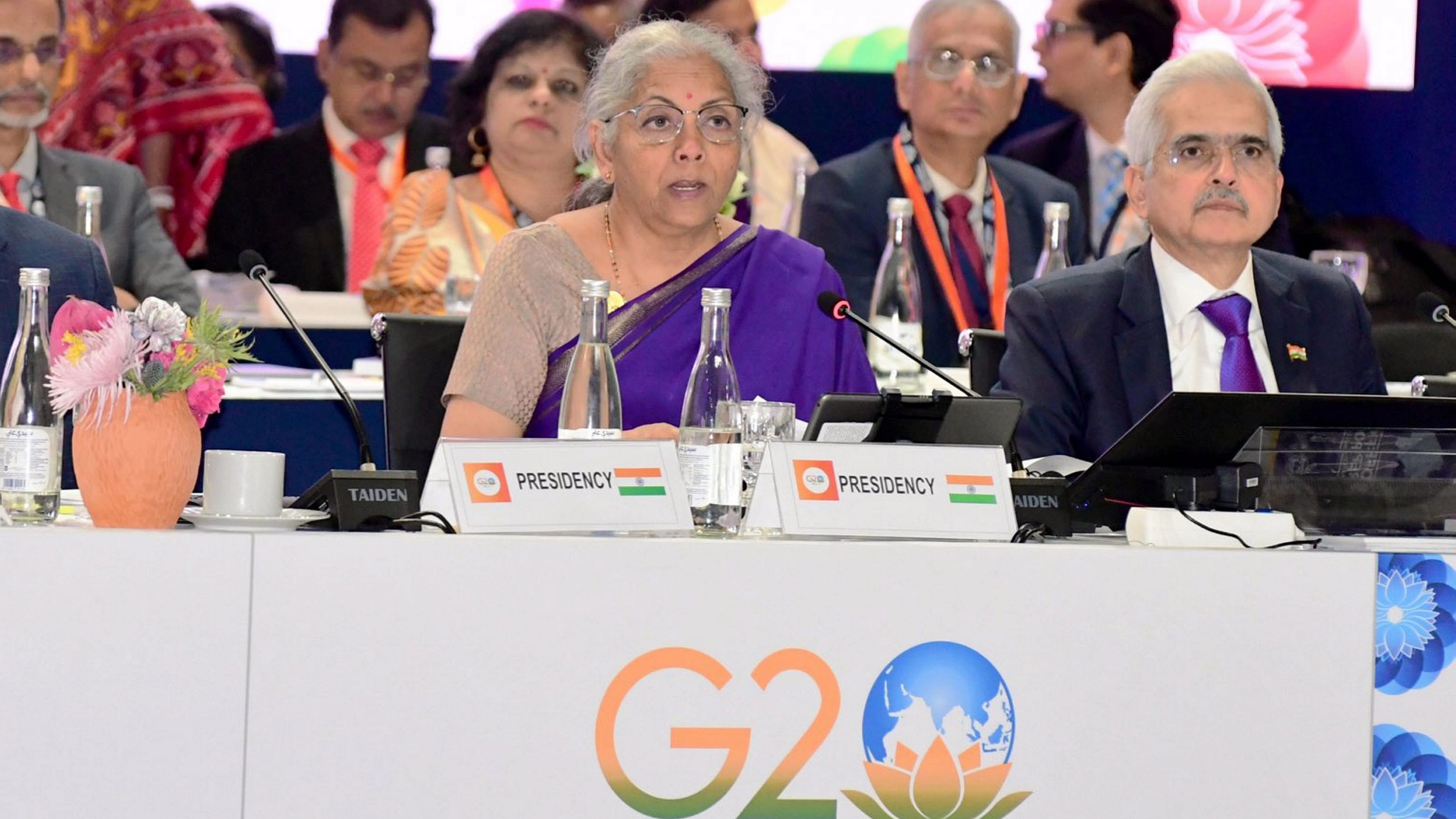
Union Finance Minister Nirmala Sitharaman at the G20 Finance Ministers and Central Bank Governors' meeting at Marrakech, Morocco. RBI Governor Shaktikanta Das is also seen.
PTI Photo
Finance Minister Nirmala Sitharaman said on Friday that the proposed India, Middle-East, Europe Economic Corridor (IMEEC) will not be impacted by the war in Israel, as it is a long-term project.
Addressing the media after the meeting of G-20 Finance Ministers and Central Bank Governors (FMCBG) in Marrakesh, Morocco, Sitharaman said that the conflict in the middle-east has again raised concerns about rising crude oil prices, and hence inflation.
“The IMEEC, which is an India initiative, is for the long-term, and its significance is long-term. While short term glitches can raise concerns, we will keep engaging with stakeholders, and keep our communications open,” Sitharaman said.
The agreement for IMEEC was signed by leaders including Prime Minister Narendra Modi on the sidelines of the G-20 New Delhi Leaders Summit in September. Seen as a counterweight to China’s Belt and Road Initiative. The corridor is proposed from India to Europe through the United Arab Emirates, Saudi Arabia, Jordan, Israel and Greece.
Though the war in Israel did not find mention in the joint communique issued by the FMCBG, it adds to the global supply chain disturbances already being caused by the Russia-Ukraine war. Sitharaman said that G-20 members expressed concerns about the impact it is having on fuel prices.
“The recent crisis in the Middle East, and the concerns about fuel prices, these are concerns which many countries have raised. They add to fuel and food security concerns, and hence on inflation, and the fragmentation of supply chains,” she said.
The Marrakesh meet is the 4th and final FMCBG meeting being held under India’s G-20 Presidency, as it prepares to hand over the reins to Brazil for 2024. The three other FMCBGs have been held in Bengaluru, Washington DC and Gandhinagar respectively.
The Finance Minister said that the key achievements of the G-20 finance track under India’s leadership have included reforming of multilateral development banks, adopting a global cryptocurrency framework, financial inclusion through digital public infrastructure, managing global debt vulnerabilities and financing climate resilient cities, among others.
“Ministers and governors recognized that the global economy has shown resilience to recent shocks. The members reiterated the need for well-calibrated monetary, fiscal, financial, and structural policies to promote growth, reduce inequalities and maintain macroeconomic and financial stability,” she said.
At the meeting, members adopted ‘G20 Roadmap on Crypto Assets’, and called for a swift and coordinated implementation, including implementation of policy frameworks, outreach beyond G20 jurisdictions, global coordination, cooperation, and information sharing, and addressing data gaps.
“This detailed and action-oriented roadmap is essential to achieve our common goals of macro-economic and financial stability and to ensure effective, flexible, and coordinated implementation of the comprehensive policy framework for crypto assets,” Sitharaman said.
The minister also said that a timeline is being worked upon, to commence exchanges by relevant jurisdictions under the Crypto-Asset Reporting Framework (CARF).
“Considering the aspiration of a significant number of jurisdictions, it has been decided that CARF exchanges will start by 2027 in these jurisdictions. To establish this process, a CARF group has been formed in September 2023,” she said.